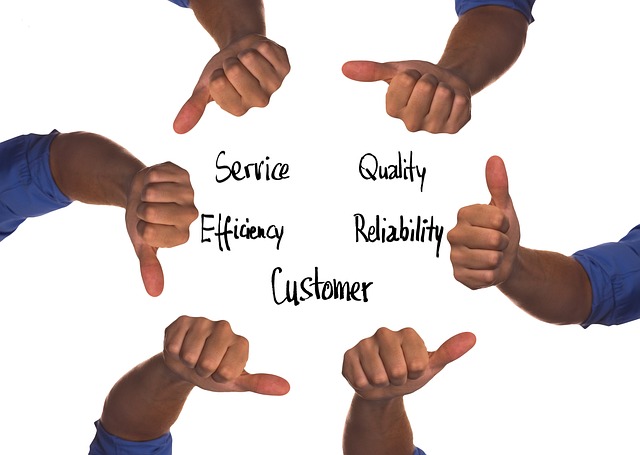In today’s fast-paced world, fostering a growth mindset has become one of the most valuable traits one can cultivate. But what does it truly mean to have a growth mindset, and why is it pivotal for personal success? Let’s delve into this transformative concept, exploring its origins, benefits, and practical steps to integrate it into your life. This journey will shed light on how adopting a growth mindset can shape your personal development and empower you to achieve your aspirations.
Understanding Growth Mindset
The term “growth mindset” was popularized by psychologist Carol Dweck in her groundbreaking book, “Mindset: The New Psychology of Success.” At its core, a growth mindset is the belief that our abilities and intelligence can be developed with effort, learning, and perseverance. In contrast, a fixed mindset operates on the premise that our qualities are set in stone, leaving little room for improvement. Those with a growth mindset not only embrace challenges but also view failures as opportunities for learning and growth.
To illustrate, think about a child learning to ride a bicycle. When they fall, a fixed mindset may lead to thoughts like, “I can’t do this. I’m just not good at riding bikes.” On the other hand, a growth mindset encourages the child to think, “Falling is part of learning. I’ll get better with practice.” This fundamental difference in perspective can significantly affect one’s approach to life, challenges, and long-term success.
The Importance of a Growth Mindset for Personal Success
Why should anyone care about adopting a growth mindset? The significance of this concept lies in its profound impact on personal success. Individuals who cultivate a growth mindset tend to achieve higher levels of personal development. They actively seek out learning opportunities, adapt to setbacks, and push through obstacles, which inevitably leads to greater accomplishments in various facets of life.
Moreover, this mindset fosters resilience. Life is replete with challenges—whether they stem from career setbacks, personal disappointments, or even day-to-day stresses. Those with a growth mindset view these hurdles not as insurmountable barriers but as valuable lessons that contribute to overall growth. By learning to view failure as a stepping stone rather than a stopping point, individuals can maintain motivation and enthusiasm for their pursuits. This attitude not only enhances personal success but also creates a more fulfilling and satisfying life experience.
How to Cultivate a Growth Mindset
Now that we understand the essence of a growth mindset and its importance, the next logical question arises: How do you cultivate this mindset? Here are several practical strategies that anyone can implement to encourage a growth mindset in daily life.
First, practice self-awareness. Recognizing your current mindset is the first step towards change. Take time to reflect on your thoughts and reactions in various situations. When facing challenges, do you feel anxious or excited? Identifying these initial reactions can help you understand whether you lean toward a fixed or growth mindset.
Next, challenge your inner critic. Many people have an internal dialogue that is harsh and judgmental. Instead of letting this critical voice dictate your feelings about yourself, practice reframing negative thoughts. For example, instead of saying, “I will never get this right,” shift to “I can learn and improve with practice.” This simple adjustment can significantly alter how you perceive challenges.
Embracing Challenges
Another important aspect of developing a growth mindset is learning to embrace challenges. When you approach obstacles as opportunities, you start to cultivate resilience and adaptability. Seek out situations that push you outside your comfort zone. This might involve taking on a new project at work, learning a new skill, or stepping into unfamiliar roles within your community.
By setting slightly challenging yet achievable goals, you create a space where you can learn and grow. Ensure that these challenges are tangible. For instance, instead of saying, “I want to get better at public speaking,” specify, “I will join a local Toastmasters club and practice speaking in front of others once a week.” This clarity in goal-setting fosters accountability, which is crucial for personal success.
Persistence in the Face of Setbacks
Personal growth often hinges on how one responds to setbacks. Many give up after experiencing failure, but those who embrace a growth mindset perceive failure as a vital part of the learning process. When you encounter difficulties, take a moment to analyze what went wrong and consider what you can do differently next time.
For example, consider Thomas Edison, who famously said, “I have not failed. I’ve just found 10,000 ways that won’t work.” This powerful perspective shift emphasizes the importance of persistence. Instead of dwelling on mistakes, focus on the next steps. Cultivating such an attitude requires practice but pays off tremendously in personal achievements.
Lifelong Learning
Another fundamental principle of nurturing a growth mindset is fostering a love for lifelong learning. Remain curious and eager to expand your knowledge and skills. This can involve formal education, online courses, networking with people in your field, or simply engaging with books and articles in areas of interest. By committing to a continuous learning process, you embrace a fundamental tenet of a growth mindset.
Moreover, consider surrounding yourself with individuals who also hold a growth mindset. Engage in discussions that challenge your thoughts, share insights, and explore new ideas together. This network of growth-oriented individuals will not only inspire you but also provide valuable feedback, further enhancing your personal development. As the saying goes, “You become like the five people you spend the most time with.” So, choose wisely and invest in relationships that foster growth.
The Role of Feedback
Feedback plays a crucial role in fostering a growth mindset. Instead of fearing criticism, learn to treat feedback as a valuable tool for improvement. When you receive constructive feedback, reflect on it rather than react defensively. Ask yourself how you can apply this new information towards personal growth.
Additionally, actively seek feedback from others. This approach not only helps you gain different perspectives but also reinforces the idea that growth is a continual journey. When you approach feedback with an open mind, it becomes a catalyst for development. Therefore, championing a culture of feedback in your environments—from classrooms to workplaces—creates a nurturing atmosphere that promotes personal success.
Setting Realistic Goals
Alongside the pursuit of challenges and feedback is the importance of setting realistic yet aspirational goals. When you set clear, achievable objectives, you provide yourself with a roadmap for where you want to go. But remember, these goals should stretch your abilities without overwhelming you. Break larger goals into smaller, manageable tasks to maintain motivation and track progress.
It’s essential to celebrate milestones along the way. Recognizing your achievements, no matter how small, reinforces a positive mindset and motivates you to continue pushing forward. A growth-oriented approach to goal-setting helps pave the way for significant accomplishments over time, contributing to your overall path toward personal success.
Conclusion: A Journey, Not a Destination
As we navigate the complexities of life, developing a growth mindset stands out as one of the most impactful strategies for personal success. Embracing challenges, persisting through setbacks, engaging in lifelong learning, actively seeking feedback, and setting realistic goals contribute to a rich tapestry of personal development. It’s important to remember that cultivating a growth mindset is not a one-time effort but a lifelong journey. Each step taken in this direction enhances your resilience, adaptability, and overall potential for success.
FAQs
-
What is a growth mindset?
A growth mindset is the belief that abilities and intelligence can be developed through dedication and hard work. It fosters resilience and a love for learning, which contributes to personal success.
-
Why is a growth mindset important for personal success?
A growth mindset encourages individuals to embrace challenges, persist through failures, and view obstacles as opportunities. This perspective enables continuous learning and adaptation, which are crucial for achieving personal goals.
-
How can I develop a growth mindset?
To develop a growth mindset, practice self-awareness, challenge negative thoughts, embrace challenges, seek feedback, persist through setbacks, and commit to lifelong learning.
-
What role does feedback play in developing a growth mindset?
Feedback is vital for growth because it provides constructive insights that help individuals improve their skills. Approaching feedback with an open mind encourages continuous development and personal success.
-
Can a growth mindset be applied in all areas of life?
Absolutely! A growth mindset can be applied in various aspects of life, including education, career, relationships, and personal development. It empowers individuals to strive for continuous improvement regardless of the context.



